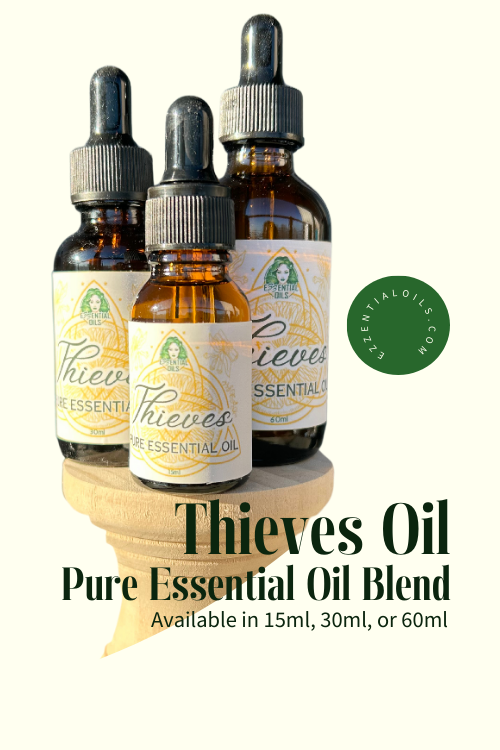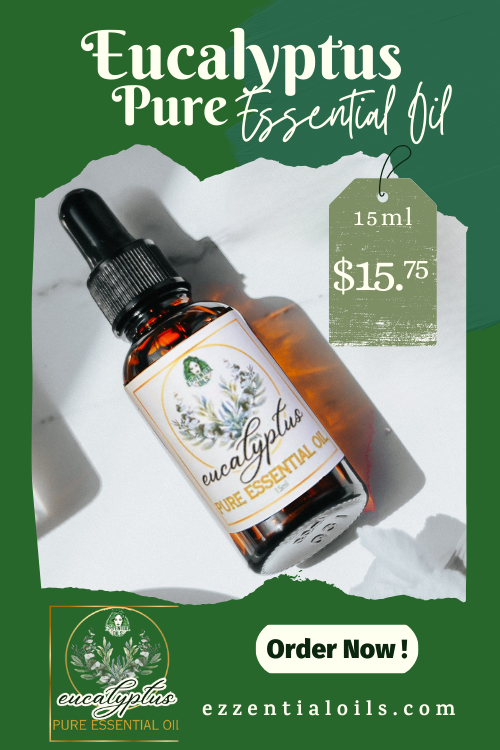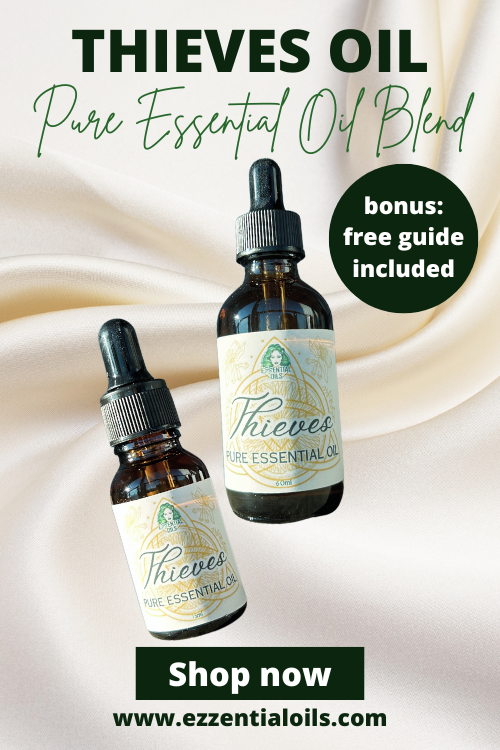The Hidden Dangers Of Essential Oils
Essential oils have become increasingly popular as natural remedies for physical, emotional, and spiritual well-being. Their versatility and accessibility make them a staple in many homes. However, while these potent plant extracts offer numerous benefits, they also come with risks that should not be overlooked. Misuse or lack of understanding can lead to adverse effects, undermining their therapeutic potential. This article aims to educate readers on the dangers of essential oils and how to use them safely and responsibly.
Understanding Essential Oils
Essential oils are highly concentrated plant extracts obtained through various extraction methods. This potency is what makes them effective, but it also makes them potentially dangerous if misused. For example, a single drop of peppermint oil can equate to approximately 28 cups of peppermint tea in terms of strength. Such concentration underscores the need for proper handling and application. Additionally, the quality of essential oils varies widely, and low-quality or adulterated oils can pose significant risks.
Common Dangers of Essential Oils
Skin Irritation and Sensitization
One of the most common issues with essential oils is skin irritation or sensitization, especially when oils are applied undiluted. Certain oils, such as cinnamon and oregano, are particularly potent and can cause burns, redness, or rashes. Over time, repeated exposure to undiluted oils can lead to sensitization, where the skin develops an allergic reaction to the oil. Always dilute essential oils with a carrier oil and perform a patch test before use.
Allergic Reactions
Some individuals may experience allergic reactions to certain essential oils. Common allergens include citrus oils, tea tree oil, and ylang-ylang. Symptoms can range from mild irritation to more severe reactions like difficulty breathing. Knowing your sensitivities and testing oils before widespread use is crucial.
Phototoxicity
Phototoxicity occurs when certain essential oils increase the skin’s sensitivity to UV light, leading to severe burns or discoloration after sun exposure. Citrus oils, such as bergamot and lemon, are particularly prone to this effect. Avoid sun exposure for at least 12-24 hours after applying phototoxic oils to the skin. For more information on phototoxic oils, read Phototoxicity And Essential Oils: A Comprehensive Guide To Safe Usage.
Toxicity from Ingestion
Ingesting essential oils without professional guidance can be extremely dangerous. Essential oils are not water-soluble and can cause severe damage to the digestive system, liver, and kidneys. For instance, ingesting as little as a few drops of wintergreen oil can lead to poisoning. Always consult a qualified professional before considering internal use.
Respiratory Issues
Diffusing essential oils in poorly ventilated spaces or using high concentrations can irritate the respiratory system, especially for individuals with asthma or other lung conditions. Oils with strong or mentholated aromas, such as eucalyptus or peppermint, can exacerbate symptoms in sensitive individuals.
Hormonal Disruption
Some studies suggest that certain essential oils, such as lavender and tea tree, may disrupt hormonal balance. These effects are particularly concerning for children and individuals with hormone-sensitive conditions. Moderation and careful selection of oils are vital to avoiding these potential issues.
Risks to Pets and Children
Essential oils can be toxic to pets, with oils like tea tree, wintergreen, and citrus being particularly harmful. Animals metabolize substances differently than humans, making them more susceptible to toxicity. Similarly, young children are more sensitive to essential oils, and improper use can lead to serious health complications. Always keep oils out of reach of children and consult a veterinarian before using them around pets.
Misleading Marketing Claims
The essential oil industry has seen rapid growth in recent years, but it remains largely unregulated. This lack of oversight has led to a proliferation of misleading claims and unsafe practices, often promoted by companies or influencers seeking to capitalize on the trend. Many of these sources advocate for risky behaviors, such as ingesting essential oils or applying them directly to the skin without dilution, despite the significant health risks these practices pose. For example, ingesting essential oils without proper knowledge or guidance can lead to toxicity, gastrointestinal distress, or long-term organ damage, as these highly concentrated substances can overwhelm the body's natural detoxification processes. Similarly, applying undiluted oils to the skin can cause burns, rashes, or even permanent sensitization, making the body react negatively to the oil over time.
Another common issue is the exaggerated or false claims made about essential oils' abilities to cure diseases, replace medications, or provide instant results. While essential oils can complement traditional healthcare and support well-being, they are not a substitute for medical treatment. Claims suggesting that essential oils can "cure cancer" or "instantly relieve chronic conditions" not only mislead consumers but can also delay them from seeking appropriate medical care.
Consumers must exercise caution and critical thinking when encountering marketing materials or social media promotions for essential oils. It’s essential to look for evidence-based information and rely on guidance from qualified professionals, such as certified aromatherapists or reputable organizations specializing in aromatherapy and natural health. Trusted sources will emphasize safe usage practices and highlight the importance of understanding contraindications and individual sensitivities. By being informed and discerning, consumers can avoid the pitfalls of misleading marketing while enjoying the genuine benefits of essential oils.
Best Practices for Safe Use
Dilution Guidelines
For adults, dilute essential oils to 1-2% for general use (e.g., 6-12 drops per ounce of carrier oil).
For children or sensitive skin, use a 0.5-1% dilution.
Storage Tips
Store essential oils in a cool, dark place, away from direct sunlight and heat.
Keep oils in tightly sealed glass bottles to prevent oxidation and accidental spills.
Quality Matters
Choose oils from reputable brands that provide third-party testing and clear labeling. Click here to read more about essential oil labels: What Labels Mean: Essential Oil Buying Guide
Look for certifications such as organic or therapeutic grade (though the latter is not a regulated term).
Educate Yourself
Take certified courses or consult with a professional aromatherapist to deepen your understanding of safe practices.
When to Avoid Essential Oils
While essential oils can be beneficial, there are situations where caution or complete avoidance is necessary to prevent harm. One such situation is during pregnancy. Certain essential oils, such as clary sage and rosemary, are known to stimulate uterine contractions, which can potentially lead to complications, particularly in the early stages of pregnancy. It is crucial for expectant mothers to consult with a healthcare professional or certified aromatherapist before using any essential oils.
Individuals with specific medical conditions should also exercise care. For example, people with epilepsy are advised to avoid oils like rosemary and fennel, as these can act as triggers for seizures. Similarly, those with high blood pressure should steer clear of oils like thyme or sage, which may exacerbate their condition. Always research the contraindications of essential oils in relation to any preexisting health conditions.
Additionally, essential oils can interact with medications, sometimes in harmful ways. For instance, oils such as wintergreen, which contains a high concentration of methyl salicylate, can interact with blood-thinning medications, increasing the risk of bleeding. Before incorporating essential oils into a wellness routine, individuals on medication should seek advice from their doctor or a qualified practitioner to avoid adverse interactions.
While essential oils offer incredible benefits, their potential dangers should not be underestimated. By understanding the risks and following best practices, you can safely enjoy the therapeutic advantages of these powerful plant extracts. Always prioritize education, moderation, and quality to ensure your experience with essential oils is both safe and effective.
For further guidance, consult reputable resources or a certified aromatherapist to enhance your knowledge and confidence in using essential oils.
Please note, the International Federation of Aromatherapists do not recommend that Essential Oils be taken internally, unless under the supervision of a Medical Doctor, who is also qualified in clinical Aromatherapy. In addition, Essential Oils must be properly diluted before use, in order to avoid any damages to property or adverse physical effects (including injury or bodily harm).
This article is for information purposes only. All Ezzential Oils products are for external use only unless otherwise indicated. This information is not intended to diagnose, treat, cure, or prevent any disease, and it should not be used by anyone who is pregnant or under the care of a medical practitioner. Please refer to our policies for further details, and our disclaimer below.
Understanding Essential Oils
Essential oils are highly concentrated plant extracts obtained through various extraction methods. This potency is what makes them effective, but it also makes them potentially dangerous if misused. For example, a single drop of peppermint oil can equate to approximately 28 cups of peppermint tea in terms of strength. Such concentration underscores the need for proper handling and application. Additionally, the quality of essential oils varies widely, and low-quality or adulterated oils can pose significant risks.
Common Dangers of Essential Oils
Skin Irritation and Sensitization
One of the most common issues with essential oils is skin irritation or sensitization, especially when oils are applied undiluted. Certain oils, such as cinnamon and oregano, are particularly potent and can cause burns, redness, or rashes. Over time, repeated exposure to undiluted oils can lead to sensitization, where the skin develops an allergic reaction to the oil. Always dilute essential oils with a carrier oil and perform a patch test before use.
Allergic Reactions
Some individuals may experience allergic reactions to certain essential oils. Common allergens include citrus oils, tea tree oil, and ylang-ylang. Symptoms can range from mild irritation to more severe reactions like difficulty breathing. Knowing your sensitivities and testing oils before widespread use is crucial.
Phototoxicity
Phototoxicity occurs when certain essential oils increase the skin’s sensitivity to UV light, leading to severe burns or discoloration after sun exposure. Citrus oils, such as bergamot and lemon, are particularly prone to this effect. Avoid sun exposure for at least 12-24 hours after applying phototoxic oils to the skin. For more information on phototoxic oils, read Phototoxicity And Essential Oils: A Comprehensive Guide To Safe Usage.
Toxicity from Ingestion
Ingesting essential oils without professional guidance can be extremely dangerous. Essential oils are not water-soluble and can cause severe damage to the digestive system, liver, and kidneys. For instance, ingesting as little as a few drops of wintergreen oil can lead to poisoning. Always consult a qualified professional before considering internal use.
Respiratory Issues
Diffusing essential oils in poorly ventilated spaces or using high concentrations can irritate the respiratory system, especially for individuals with asthma or other lung conditions. Oils with strong or mentholated aromas, such as eucalyptus or peppermint, can exacerbate symptoms in sensitive individuals.
Hormonal Disruption
Some studies suggest that certain essential oils, such as lavender and tea tree, may disrupt hormonal balance. These effects are particularly concerning for children and individuals with hormone-sensitive conditions. Moderation and careful selection of oils are vital to avoiding these potential issues.
Risks to Pets and Children
Essential oils can be toxic to pets, with oils like tea tree, wintergreen, and citrus being particularly harmful. Animals metabolize substances differently than humans, making them more susceptible to toxicity. Similarly, young children are more sensitive to essential oils, and improper use can lead to serious health complications. Always keep oils out of reach of children and consult a veterinarian before using them around pets.
Misleading Marketing Claims
The essential oil industry has seen rapid growth in recent years, but it remains largely unregulated. This lack of oversight has led to a proliferation of misleading claims and unsafe practices, often promoted by companies or influencers seeking to capitalize on the trend. Many of these sources advocate for risky behaviors, such as ingesting essential oils or applying them directly to the skin without dilution, despite the significant health risks these practices pose. For example, ingesting essential oils without proper knowledge or guidance can lead to toxicity, gastrointestinal distress, or long-term organ damage, as these highly concentrated substances can overwhelm the body's natural detoxification processes. Similarly, applying undiluted oils to the skin can cause burns, rashes, or even permanent sensitization, making the body react negatively to the oil over time.
Another common issue is the exaggerated or false claims made about essential oils' abilities to cure diseases, replace medications, or provide instant results. While essential oils can complement traditional healthcare and support well-being, they are not a substitute for medical treatment. Claims suggesting that essential oils can "cure cancer" or "instantly relieve chronic conditions" not only mislead consumers but can also delay them from seeking appropriate medical care.
Consumers must exercise caution and critical thinking when encountering marketing materials or social media promotions for essential oils. It’s essential to look for evidence-based information and rely on guidance from qualified professionals, such as certified aromatherapists or reputable organizations specializing in aromatherapy and natural health. Trusted sources will emphasize safe usage practices and highlight the importance of understanding contraindications and individual sensitivities. By being informed and discerning, consumers can avoid the pitfalls of misleading marketing while enjoying the genuine benefits of essential oils.
Best Practices for Safe Use
Dilution Guidelines
For adults, dilute essential oils to 1-2% for general use (e.g., 6-12 drops per ounce of carrier oil).
For children or sensitive skin, use a 0.5-1% dilution.
Storage Tips
Store essential oils in a cool, dark place, away from direct sunlight and heat.
Keep oils in tightly sealed glass bottles to prevent oxidation and accidental spills.
Quality Matters
Choose oils from reputable brands that provide third-party testing and clear labeling. Click here to read more about essential oil labels: What Labels Mean: Essential Oil Buying Guide
Look for certifications such as organic or therapeutic grade (though the latter is not a regulated term).
Educate Yourself
Take certified courses or consult with a professional aromatherapist to deepen your understanding of safe practices.
When to Avoid Essential Oils
While essential oils can be beneficial, there are situations where caution or complete avoidance is necessary to prevent harm. One such situation is during pregnancy. Certain essential oils, such as clary sage and rosemary, are known to stimulate uterine contractions, which can potentially lead to complications, particularly in the early stages of pregnancy. It is crucial for expectant mothers to consult with a healthcare professional or certified aromatherapist before using any essential oils.
Individuals with specific medical conditions should also exercise care. For example, people with epilepsy are advised to avoid oils like rosemary and fennel, as these can act as triggers for seizures. Similarly, those with high blood pressure should steer clear of oils like thyme or sage, which may exacerbate their condition. Always research the contraindications of essential oils in relation to any preexisting health conditions.
Additionally, essential oils can interact with medications, sometimes in harmful ways. For instance, oils such as wintergreen, which contains a high concentration of methyl salicylate, can interact with blood-thinning medications, increasing the risk of bleeding. Before incorporating essential oils into a wellness routine, individuals on medication should seek advice from their doctor or a qualified practitioner to avoid adverse interactions.
While essential oils offer incredible benefits, their potential dangers should not be underestimated. By understanding the risks and following best practices, you can safely enjoy the therapeutic advantages of these powerful plant extracts. Always prioritize education, moderation, and quality to ensure your experience with essential oils is both safe and effective.
For further guidance, consult reputable resources or a certified aromatherapist to enhance your knowledge and confidence in using essential oils.
Safety Information
Please note, the International Federation of Aromatherapists do not recommend that Essential Oils be taken internally, unless under the supervision of a Medical Doctor, who is also qualified in clinical Aromatherapy. In addition, Essential Oils must be properly diluted before use, in order to avoid any damages to property or adverse physical effects (including injury or bodily harm).
This article is for information purposes only. All Ezzential Oils products are for external use only unless otherwise indicated. This information is not intended to diagnose, treat, cure, or prevent any disease, and it should not be used by anyone who is pregnant or under the care of a medical practitioner. Please refer to our policies for further details, and our disclaimer below.













